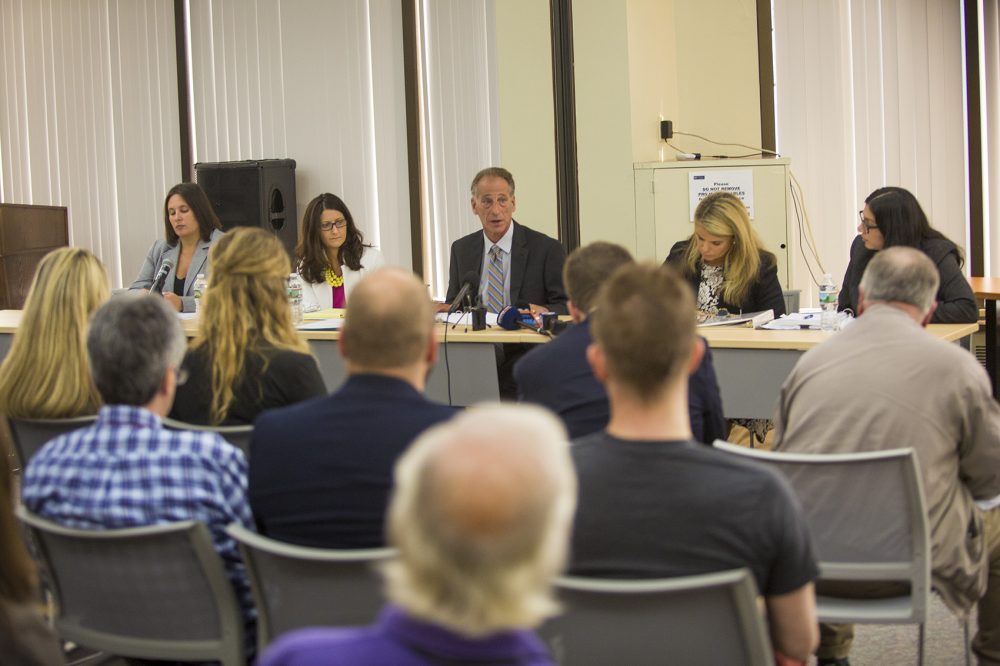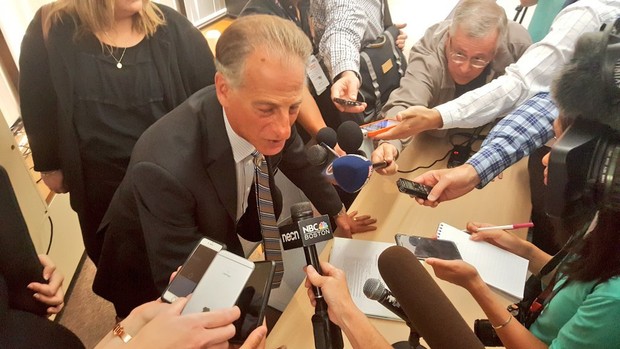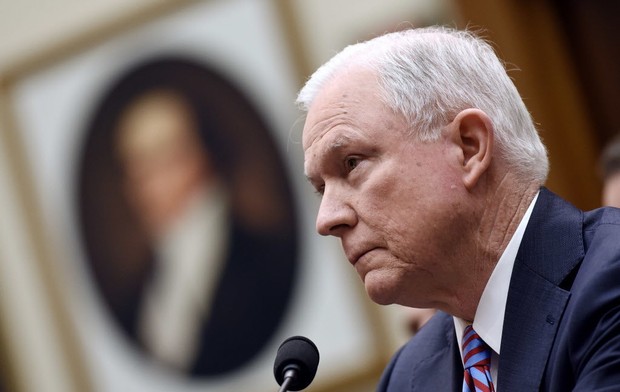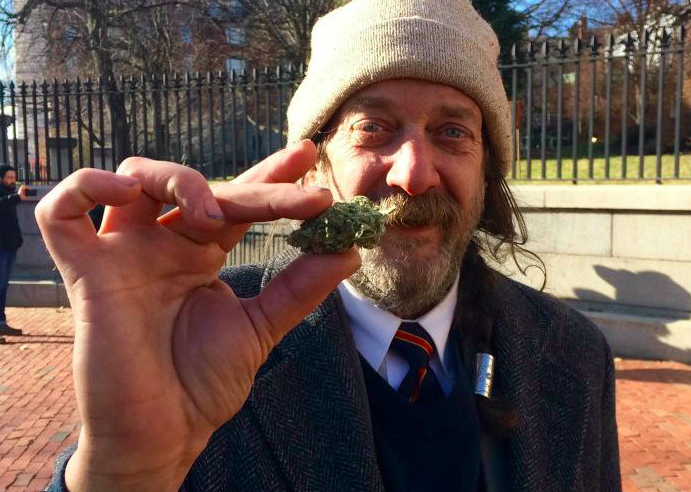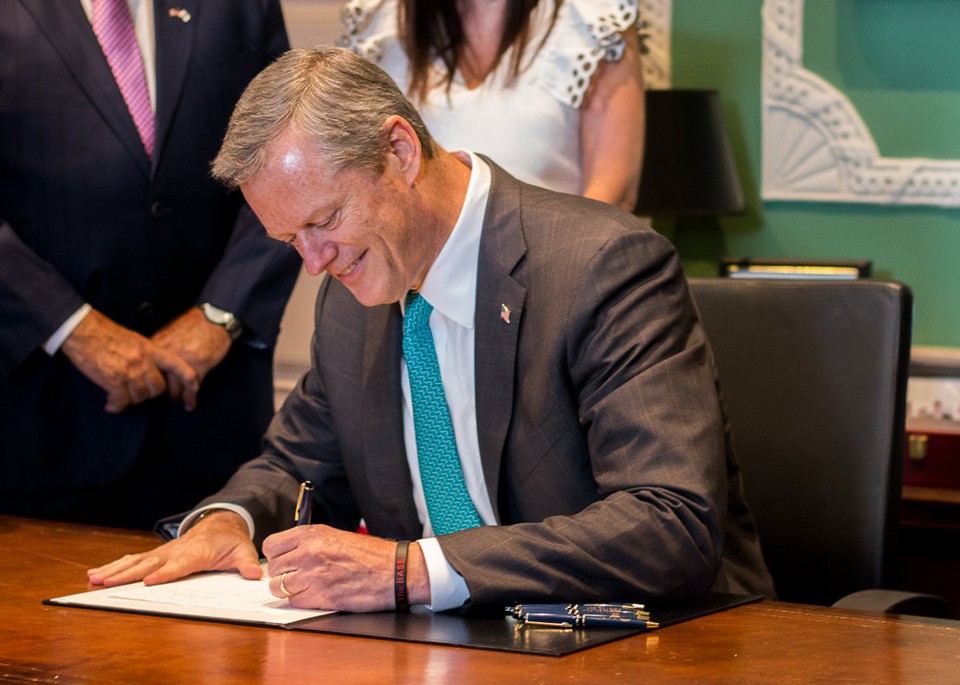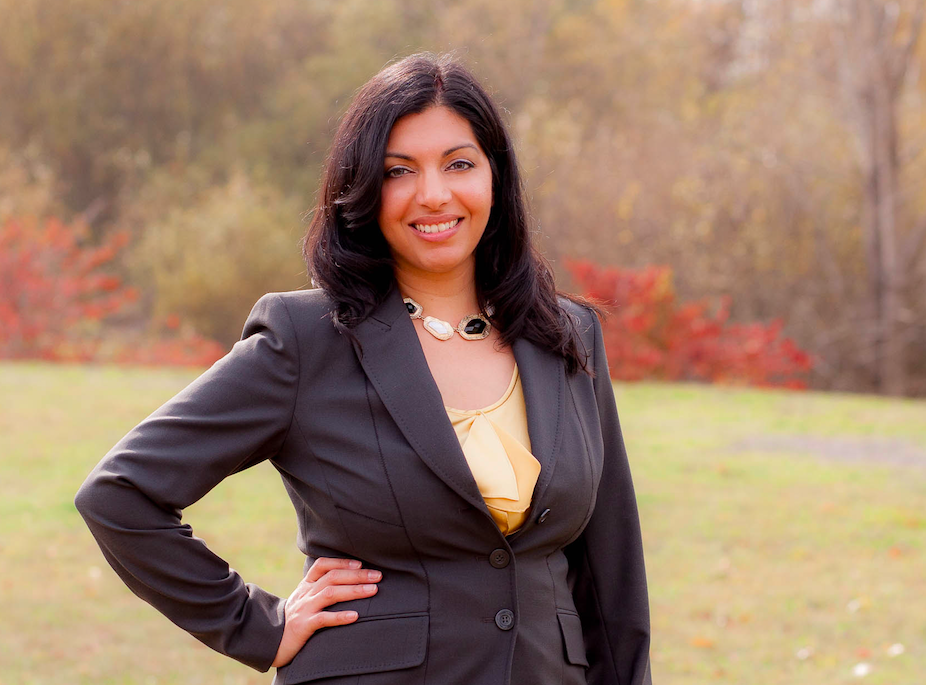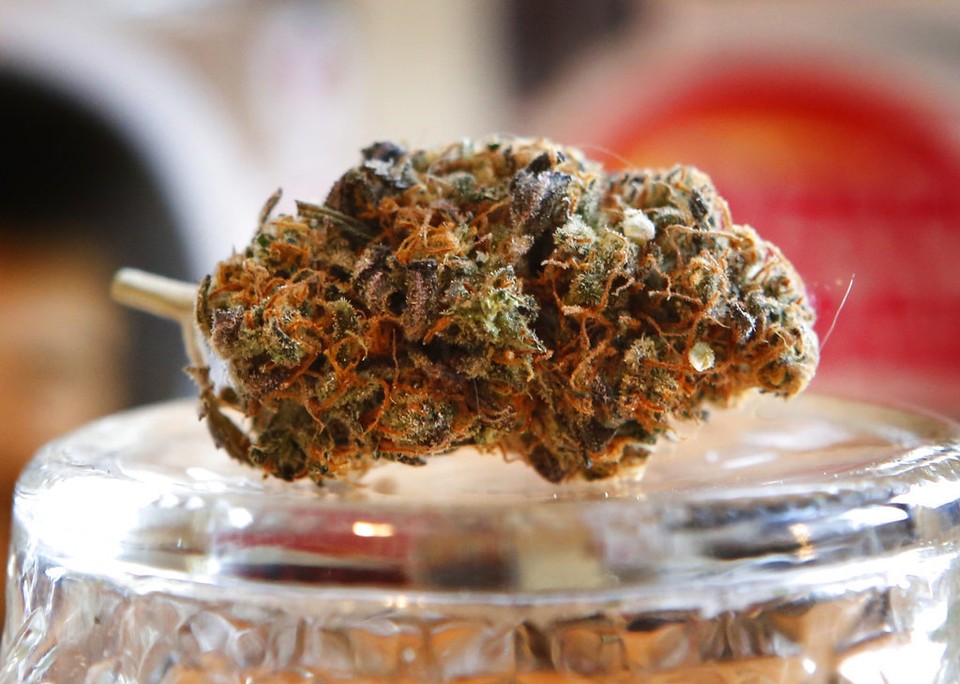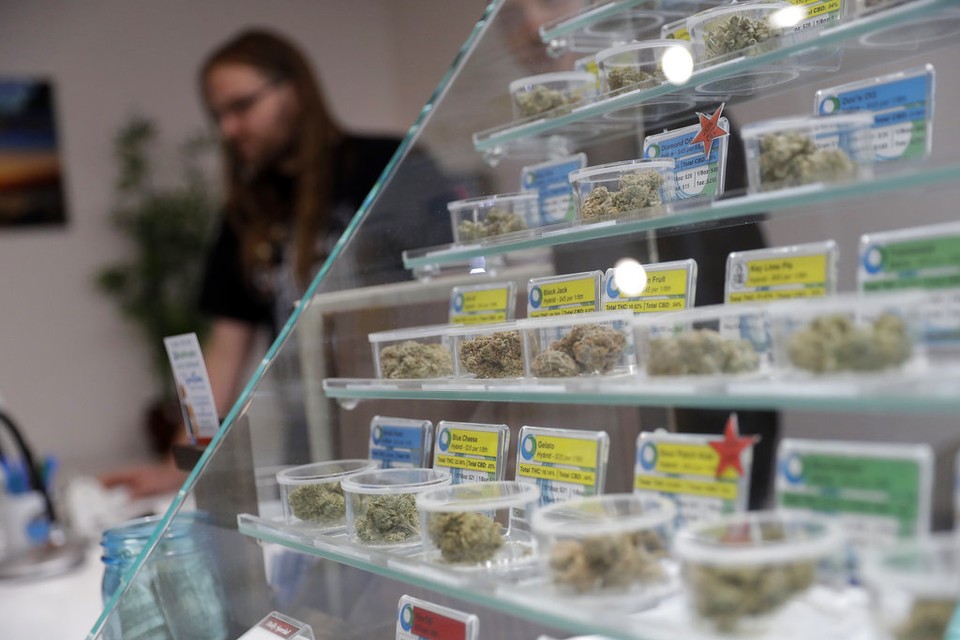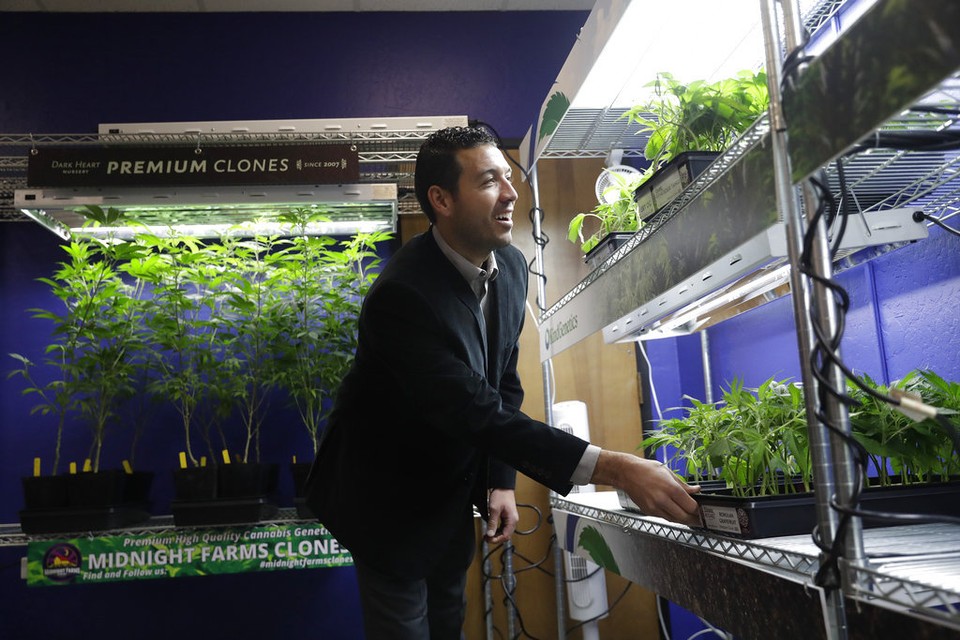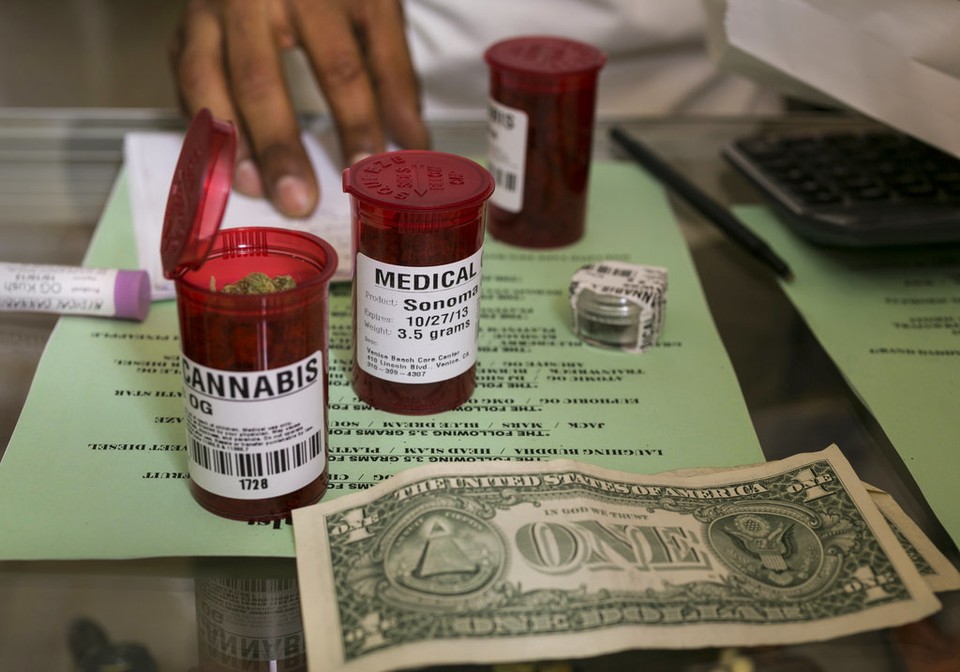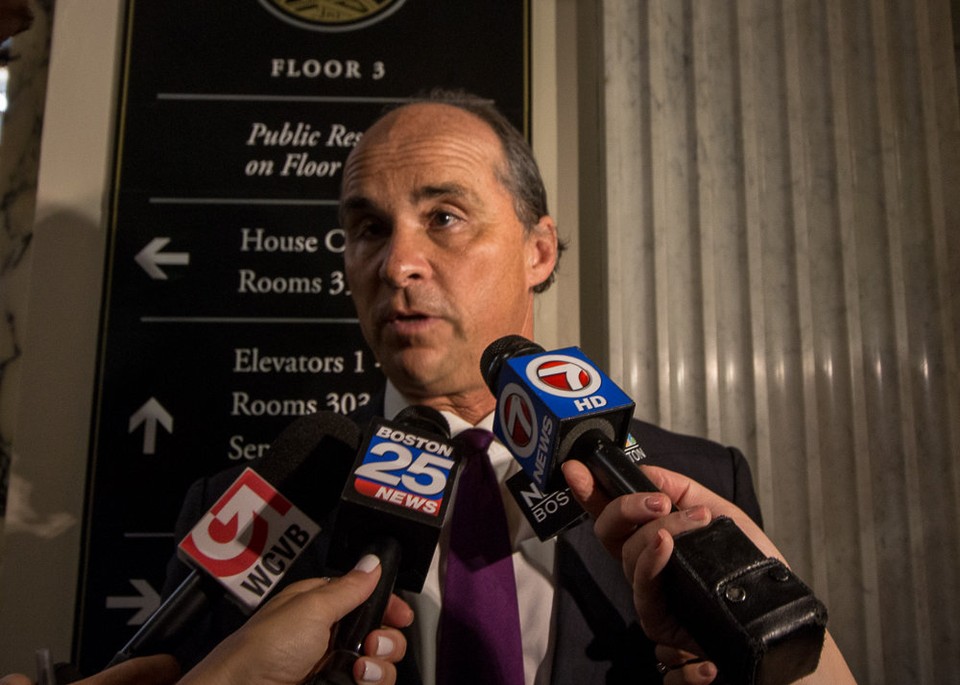When can you legally buy marijuana in Massachusetts? Here's the timeline
Massachusetts voters approved marijuana for medical use in 2012, but it took the state nearly three years to open its first dispensary.
The timeline for retail pot shops is looking a little more expeditious, even with some delays and the uncertainty brought about by US Attorney General Jeff Sessions.
When Bay State voters went to the polls in November 2016, they approved a ballot question legalizing recreational marijuana with a rapid timeline. (Marijuana is still illegal at the federal level, as federal prosecutors keep noting.)
The growing and gifting of pot became legal under state law in December 2016, but Gov. Charlie Baker and state lawmakers tinkered with the timeline, delaying a series of important deadlines by six months as they sought to re-write the voter-approved marijuana laws.
That meant that states like California, whose voters approved recreational marijuana at the same time as Massachusetts, beat the Bay State to opening retail marijuana shops.
Steven Hoffman, chairman of the Massachusetts Cannabis Control Commission. (Gintautas Dumcius/MassLive)
It's not set in stone
State regulators say they’re moving ahead with setting up the framework for legal pot shops.
But the timeline could still change. Jeff Sessions aside, roadblocks could pop up, and lawsuits could slow things down, too.
Take the Massachusetts Gaming Commission as an example. (Lawmakers looked to the set-up of the Gaming Commission when rewriting the state’s marijuana laws to create the Cannabis Control Commission.)
The Gaming Commission
The Gaming Commission, tasked with awarding licenses for a casino and a slot parlor, was created through a 2011 law signed by Gov. Deval Patrick.
Patrick is out of office, and the casinos haven’t been completed yet. MGM Springfield is scheduled to open this year, while the massive Wynn Boston Harbor project, which was once at the center of multiple lawsuits and public spats between mayors and Steve Wynn after its license was awarded, is due to open June 2019 in Everett.
The third available resort casino license hasn’t been awarded, because plans for a potential tribal casino made the Gaming Commission take a step back.
The owner of the slots parlor license, Plainridge Park Casino, was up and running in June 2015.
US Attorney General Jeff Sessions (AP Photo)
Federal officials are the wild card
“I understand that there are people and groups looking for additional guidance from this office about its approach to enforcing federal laws criminalizing marijuana cultivation and trafficking,” Andrew Lelling, the US Attorney in Massachusetts, said after Sessions made his move to rescind an Obama-era memo that allowed states to do their own thing when it came to marijuana.
He added: “I cannot, however, provide assurances that certain categories of participants in the state-level marijuana trade will be immune from federal prosecution.”
Lellings’ comments injected additional risk and uncertainty as Massachusetts ramps up a massive change to the culture of the state that’s been underway for a while: Marijuana was decriminalized a decade ago, and medical marijuana and recreational marijuana legalization followed.
(More on that below.)
Here's the current timeline
Here’s a look at the Massachusetts timeline as it stands today, starting after voters approved the recreational marijuana law and ending with what happens to medical marijuana dispensaries now that recreational marijuana is here.
(Photo: Gintautas Dumcius/MassLive)
Parts of new marijuana law go into effect -- Dec. 15, 2016
A little more than a month after Massachusetts voters approved legalization, people who were at least 21 years old could possess up to 10 ounces of marijuana inside their home and up to one ounce outside on this date.
Smoking marijuana in public is still banned in the same places smoking tobacco is.
Gov. Charlie Baker (Photo: Kristin LaFratta/MassLive)
Gov. Baker signs law delaying retail pot shops' part of marijuana law -- Dec. 30, 2016
Lawmakers rushed a bill to the governor’s desk delaying key parts of the marijuana law that govern retail pot shops. It didn’t affect personal possession limits and the home-growing of marijuana products.
Board of cannabis advisers set up -- Aug. 2017
The 25-member Cannabis Advisory Board was set up through the ballot question approved by voters. Its members include Walpole Chief of Police John Carmichael Jr., who opposed marijuana legalization, and Kimberly Napoli, an attorney who co-founded the Hempest, a hemp-based clothing boutique in Cambridge’s Harvard Square neighborhood.
Shaleen Title, one of the five Cannabis Control Commission (Photo via Massachusetts State Treasurer's Office)
Cannabis Control Commission set up -- Sept. 2017
A retired executive who worked at Bain. A former state senator from Central Massachusetts. A former top aide to ex-Attorney General Martha Coakley. An attorney who co-founded a cannabis recruiting firm. And the former deputy general counsel for the Massachusetts Department of Public Health.
Tapped for the job in September 2017, these five people are the ones with hands on where recreational marijuana is going to go in Massachusetts. Just one member voted in favor of the ballot question broadly legalizing recreational marijuana.
Learn more about them
here.
They’ve hired
Shawn Collins, a top aide to state Treasurer Deb Goldberg, as their executive director. Collins, a Webster native, was tapped due to his experience in navigating the State House.
(AP Photo: Robert F. Bukaty)
Cannabis commission releases draft regulations - December 2017
The Cannabis Control Commission dove into developing regulations for the new industry expected to grow in Massachusetts, including everything from marijuana cafes to yoga studios and movie theaters that could be allowed to sell the controversial substance.
Read more about the draft regulations
here.
Here's what the commission is doing in the first six months of 2018
The Cannabis Control Commission must start accepting license applications from potential retailers, product manufacturers and cultivators by April 1, 2018.
The five-member commission also has to endorse regulations on protocols for independent marijuana testing facilities by May 1, 2018.
The commission can issue the first retail licenses starting on June 1, 2018. (They cannot issue approvals before that date.)
(AP Photo: Marcio Jose Sanchez)
First retail pot shops slated to open -- July 1, 2018
If all goes according to the timeline described above and laid out in state law, retail pot shops should open on July 1.
The specific date of July 1 is not explicitly in the Massachusetts marijuana law, but it’s the date state regulators are aiming for because it’s when people are widely expecting them to be open.
How many stores?
The number of stores that will be open to customers remains unclear.
Kamani Jefferson, the president of the Massachusetts Recreational Consumer Council, said at a recent panel on marijuana that the state will be lucky to have 25 stores, maybe 30, by July 1.
Jim Smith, the founding partner of Smith Costello and Crawford and a former state representative from Lynn, had a more optimistic take. Also a panelist at the summit on marijuana put together by the State House News Service, Smith said there will be more than 25 shops, and could be as many as 40 to 50.
A dispensary in California. (AP Photo: Marcio Jose Sanchez)
How much retail marijuana will be available?
Both Jefferson and Smith pointed to whether there’ll be enough marijuana available.
“There’s plenty of demand,” Smith said, predicting that the “Day 1 story” will be a “picture of the lines.”
Peter Bernard, president of the Massachusetts Grower Advocacy Council, predicted in comments to
MassLive/The Republican that the first places open “will sell out in less than a week."
Taxes on marijuana could reach up to 20 percent. The break down is: 6.25 percent sales tax, state excise tax at 10.75 percent and local option tax of up to 3 percent that can be set by cities and towns.
How much is 'overkill'?
There are currently 200 pot shops in Denver, Colorado.
Sen. Stan Rosenberg, D-Amherst, said at the panel that Colorado was among the first states to implement legal marijuana, and Massachusetts is learning from what the state did to handle demand. But the amount of retail pot shops is “overkill” in Colorado, according to Rosenberg, who was one of the few elected officials at the State House to support the 2016 ballot question legalizing marijuana.
“We do not need the kind of proliferation in Massachusetts that they have in Colorado,” he said.
(AP Photo: Damian Dovarganes)
Transfer of medical marijuana program -- Dec. 31, 2018 or sooner
The rewritten marijuana laws call for the medical marijuana program to fall under the oversight of the Cannabis Control Commission.
The program has been with the state Department of Public Health, since the ballot initiative endorsed by voters in 2012 placed it there.
So what about the feds?
Baker, the Massachusetts governor, has expressed worries that federal prosecutors are sowing confusion about marijuana with the stance Jeff Sessions is taking.
Baker opposed marijuana legalization in 2016, but now notes voters approved the ballot question. Prosecutors should be focusing on street drugs like fentanyl to combat the opioid epidemic in Massachusetts and elsewhere across the country, he said.
Medical marijuana patients are scared
Registered patients of medical marijuana say they’re frightened by the Sessions move, particularly since it’s driven some operators to shift to cash-only.
But they add they’re heartened by comments by local law enforcement officials who say they won’t be going after legal marijuana operators, despite what federal prosecutors have said.
Gov. Baker’s public safety chief Dan Bennett told MassLive that the Massachusetts State Police will be focused on enforcing state law, and under state law, marijuana is legal for adults age 21 and over.
Marijuana legalization advocates are waiting to see what happens next
Jim Borghesani, a spokesman for the ballot campaign that broadly legalized marijuana, said he hopes local police departments pay attention to what Bennett said.
Public opinion has shifted toward the advocates’ side, with most voters in recent national polls believing marijuana should be legalized.
As for what happens after the Sessions move and the Lelling statements, Borghesani wrote in an email to MassLive, “I think much of how this plays out remains to be seen.”
Congress could pursue a measure that blocks federal prosecutors from moving against state-sanctioned marijuana businesses.
“As ominous as Lelling’s statement is, I’m hopeful that he and other U.S. attorneys are ultimately prevented from prosecuting lawfully operating businesses,” he wrote.
Jim Borghesani, spokesman for 'Yes on 4' pro-marijuana legalization campaign (Kristin LaFratta/MassLive)





